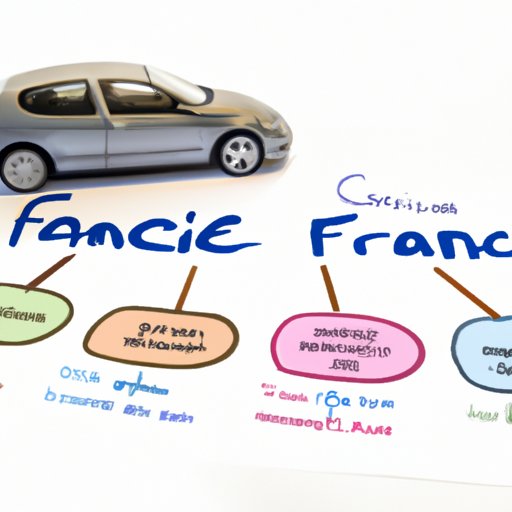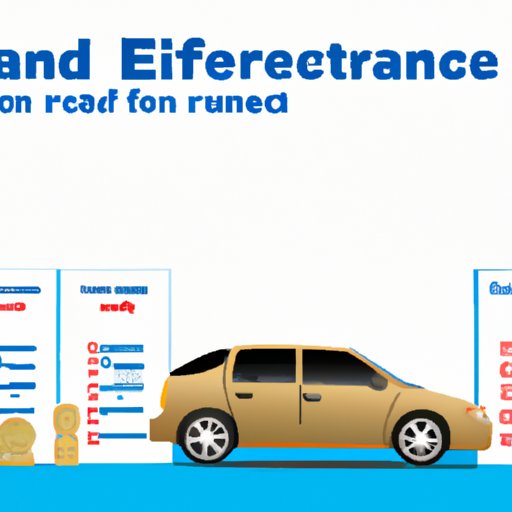
An Overview of Car Finance Rates and How They Work
When it comes to purchasing a car, understanding car finance rates is an important factor in making sure you get the best deal. A car finance rate is the rate at which interest accrues on money borrowed for the purchase of a car. The higher the rate, the more money you will be paying in interest over the life of the loan. Understanding how car finance rates work, and what factors influence them, is essential to making sure you get the most out of your auto loan.
A car finance rate is typically expressed as an Annual Percentage Rate (APR). This is a standardized measure of the cost of borrowing money, including the interest rate, fees and other costs associated with the loan. The APR will vary depending on the type of loan, the lender, and the borrower’s credit history.
There are several factors that influence car finance rates. These include the borrower’s credit score, the size of the loan, the term of the loan, and the type of loan. The better the credit score, the lower the interest rate. The larger the loan, the higher the rate. And the longer the term of the loan, the greater the risk for the lender, and thus the higher the rate.
There are several types of car finance rates available. These include fixed rate loans, variable rate loans, and balloon payment loans. Fixed rate loans have an interest rate that remains the same throughout the life of the loan, while variable rate loans can change over time. Balloon payment loans require a large lump sum payment at the end of the loan term.
The Pros and Cons of Different Car Loan Rates
Fixed rate loans are popular because they offer the security of a consistent payment amount throughout the life of the loan. However, these loans may have a higher interest rate than variable rate loans. Variable rate loans can offer lower rates at the beginning of the loan, but the rate can increase over time, leading to higher payments.
Balloon payment loans can provide a lower monthly payment, but the large lump sum payment due at the end of the loan can be difficult to manage. The borrower must be able to afford this payment or risk defaulting on the loan.

Comparing Automotive Loan Rates: What to Consider
When comparing car loan rates, there are several factors to consider. The most important factor is the interest rate. This is the rate at which interest accrues on the loan, and it will affect the total cost of the loan. Other factors to consider include the term length, any fees or charges associated with the loan, and any prepayment penalties.
The term length is the period of time over which the loan will be repaid. This can range from a few months to several years. Shorter terms will generally have higher monthly payments, but a lower total cost. Longer terms will have lower monthly payments, but a higher total cost.
Fees and charges can also add to the overall cost of the loan. These can include application fees, origination fees, and closing costs. It is important to understand all of the fees and charges associated with the loan before agreeing to it.
Prepayment penalties are another factor to consider. Some loans may have a penalty for paying off the loan early. This can add to the overall cost of the loan, so it is important to know if a loan has a prepayment penalty before agreeing to it.
A Guide to Negotiating the Best Car Financing Rate
Negotiating the best car financing rate requires research and patience. Start by researching the market for car finance rates. Compare offers from different lenders to find the best rate. Once you’ve found a few options, it’s time to start negotiating with the lenders.
When negotiating with lenders, it helps to have a good understanding of your credit score and financial situation. Be prepared to explain why you deserve a better rate and be willing to negotiate. Don’t be afraid to shop around for the best deal.
It’s also important to read the fine print of any loan agreement. Make sure you understand all of the terms and conditions of the loan before signing anything. Knowing the details of the loan can help you avoid costly mistakes.
Finally, make sure to ask about any discounts or incentives that may be available. Many lenders offer discounts for customers who pay off their loans early or make extra payments. Taking advantage of these discounts can save you money in the long run.

Understanding Car Financing Rates: What You Need to Know
Understanding car financing rates is essential to getting the best deal. It is important to understand the different types of car financing rates, calculate the total cost of the loan, and know when to negotiate for a better rate. It is also important to manage your loan payments to ensure you stay on top of your finances.
Car finance rates can vary greatly depending on the lender, the borrower’s credit score, the size of the loan, and the type of loan. Doing research and comparing different lenders can help you find the best rate. Negotiating with lenders and taking advantage of discounts and incentives can also help you get a better deal.
Understanding car finance rates, and how to negotiate the best deal, is essential for anyone looking to purchase a car. With some research and patience, you can find the best car finance rate for your needs.
(Note: Is this article not meeting your expectations? Do you have knowledge or insights to share? Unlock new opportunities and expand your reach by joining our authors team. Click Registration to join us and share your expertise with our readers.)
